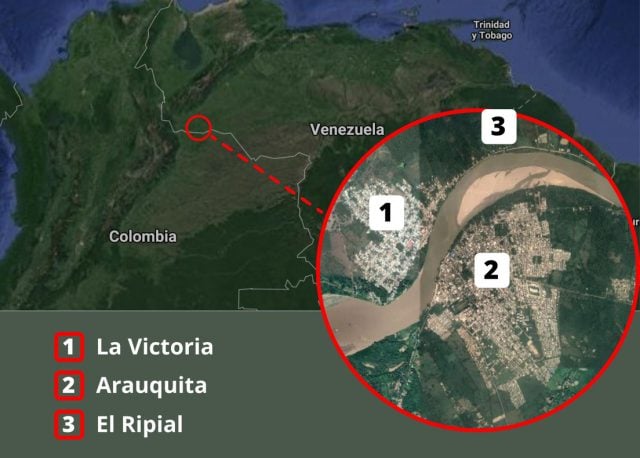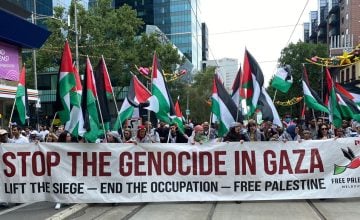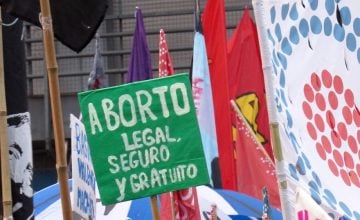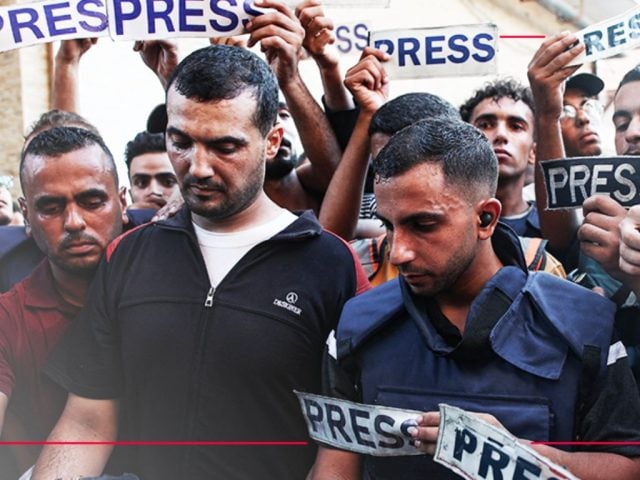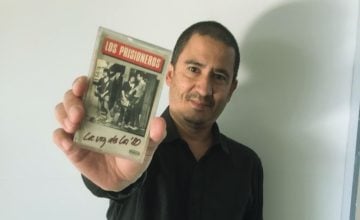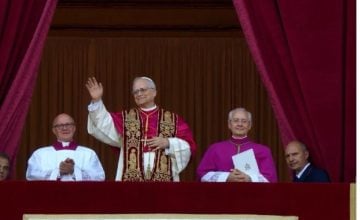The clashes between the Venezuelan Army and Colombian irregular groups in the border state of Apure have been going on for more than two weeks. The balance of these armed clashes has been the displacement of the civilian population, the death of eight soldiers of the Bolivarian National Armed Forces (FANB), assaults against public entities in Venezuela, attacks with anti-personnel mines, and a barrage of mutual accusations between Caracas and Bogota.
While the Venezuelan Government indicates that Colombia neglected the border to facilitate the activity of criminal organizations and «outsource» a conflict with Venezuela, from the House of Nariño, they accuse Miraflores of protecting a guerrilla fraction to grant them control of the territory and turn it into a trail for drug trafficking.
1- Why did the dispute start between the Venezuelan army and the Colombian irregulars?
The Venezuelan government began a military operation 15 days ago in the border state of Apure to combat the presence of Colombian irregular groups, called the «Bolivarian Shield».
This deployment sought to destroy the camps of these irregular organizations, linked to drug trafficking and armed violence, which are trying to permeate the country through the border area, in the face of the apparent absence of the Colombian authorities. In fact, Caracas indicates that Bogotá is deliberately abandoning surveillance in the binational zone, and even providing logistical support to these terrorist cells.
2- What are the illegal groups that the Venezuelan State is fighting?
Although it has not been officially specified which ones they are, there is talk of several camps of the dissidents of the extinct Revolutionary Armed Forces of Colombia (FARC), as well as the National Liberation Army (ELN) and paramilitary groups.
In the photographs that are known through social networks, you can see various insignia of the FARC and military clothing. However, the Venezuelan Defense Minister made it clear that the groups that the Army fights are diverse in nature and with different criminal purposes (from the illicit extraction of gold, rare earths up to drug trafficking), that the Army will fight them all equally .
3- What impact has the confrontation had?
The most recent official report of the Venezuelan authorities details that the attacks against the irregular settlements have left a balance of six destroyed camps, nine ‘irregulars’ killed, eight Venezuelan soldiers dead and 34 wounded, and it also implied the capture of more than 33 people, accused of belonging to these illegal organizations.
4- What has happened to the civilian population and the Venezuelan army?
According to the Venezuelan authorities, the operation was carried out outside urban areas. However, the escalation of the confrontations would have caused the displacement of part of the civil population of La Victoria to the Colombian town of Arauquita.
After the displacement was recorded, the Colombian government issued a statement expressing its «concern» over this mobilization and demanding an international presence in the area.
On this point there are conflicting versions. While Venezuela signals that the irregular groups intimidate the population into demobilizing, as is often the case in Colombia (where the number of displaced people tripled this year); Bogotá assures that the reason for that ‘departure’ was the Venezuelan military operation.
The divergence is also in the number of displaced people. The Colombian government assured that 5,000 people were mobilized to Arauquita from La Victoria, but the population projection for 2021 in that Venezuelan town does not exceed 3,500 inhabitants. On this issue, the Venezuelan Foreign Minister, Jorge Arreaza, ironically said: «Strange these media mathematics».
5- Why is there no cooperation between the Venezuelan and Colombian army?
Despite the fact that they have been operating in the area for more than two weeks, so far there is no cooperation on security matters between Colombia and Venezuela.
«All the violence and all the problems of Colombia are coming to Venezuela and there is no one to control it», denounced the Venezuelan Defense Minister, Vladimir Padrino López, who considered that the objective of Colombia’s inaction is to «outsource» the conflict through irregular groups, parapolitics and drug trafficking, scourges that have affected the Colombian territory for more than half a century of war, and that have intensified despite the peace agreement signed with the extinct FARC in 2016.
Bogotá, for its part, maintains a hostile position against Caracas, in line with disregarding the Government of President Nicolás Maduro, which was consolidated in 2019 after the self-proclamation of former opposition deputy Juan Guaidó as «interim» president of the country. Since then, there has been no public approach of any nature.
6- What is the current situation in Venezuela?
The Venezuelan government said that the situation is normalizing in the area, but announced «extraordinary measures» in three municipalities of the Apure state: Páez, Muñoz and Rómulo Gallegos. The purpose is to restrict circulation and strengthen immigration controls to detect any movement of these irregular groups to its territory.
To do this, it activated a «Special Temporary Comprehensive Defense Operational Zone», in which it will implement public security plans to surround the ‘irregulars’. It will establish routes and schedules for land, air and river traffic, as well as the operation of public and private places.
Among the mobility controls, citizens must inform the authorities in advance of changes of residence and exits or entries to the country. The authorities will be able to carry out inspections of properties, evict illegal occupations and intervene to restore free movement in urban and rural areas, should they be interrupted.
In addition, the UN has requested the collaboration of the process of lifting antipersonnel mines placed by the ‘irregulars’; and for it to mediate with the Government of Colombia to «work together» in border protection efforts.
Foreign Minister Arreaza reiterated his request to use the United Nations ‘back channel’ mechanism to coordinate security actions with Colombia, and regretted that Bogotá did not want to offer information to proceed with the capture and combat of these ‘irregular’ groups, despite the fact that the government of Iván Duque has repeatedly accused Caracas of supporting these organizations.
Similarly, the Minister of Foreign Affairs asked the Government of Mexico – which currently chairs the Community of American and Caribbean States (Celac) – to mediate so as to «open communication channels» with Colombia, in line with the mandate of that organization to maintain the region as a «Zone of Peace». Likewise, he said he was willing to talk with Colombian Foreign Minister Claudia Blum, although she acknowledged that the efforts made by Caracas to establish a high-level dialogue with Bogotá have been, so far, unsuccessful.
7- What is the position of Colombia?
Until recently, Bogotá had limited itself to accusing the Maduro government of being a «dictatorship» and discrediting the actions of the FANB. In addition, the Colombian Defense Minister, Diego Molano, reiterated in an interview with El Tiempo that the Venezuelan Army allegedly attacked the narco-terrorist faction of ‘Iván Mordisco’ to cede the area to the dissidents of the ELN and the FARC, accusations that already had been described by Chancellor Arreaza as «absurd, fanciful and schizoid».
Without offering any proof, Molano assured that the objective of the FANB’s deployment was not the protection of the border but «the protection of the drug trafficking business», despite the fact that Colombia is the main producer of cocaine in the world, the ‘irregular’ groups that operate in that border area are all of Colombian origin and Venezuela is a territory free of illicit crops.
